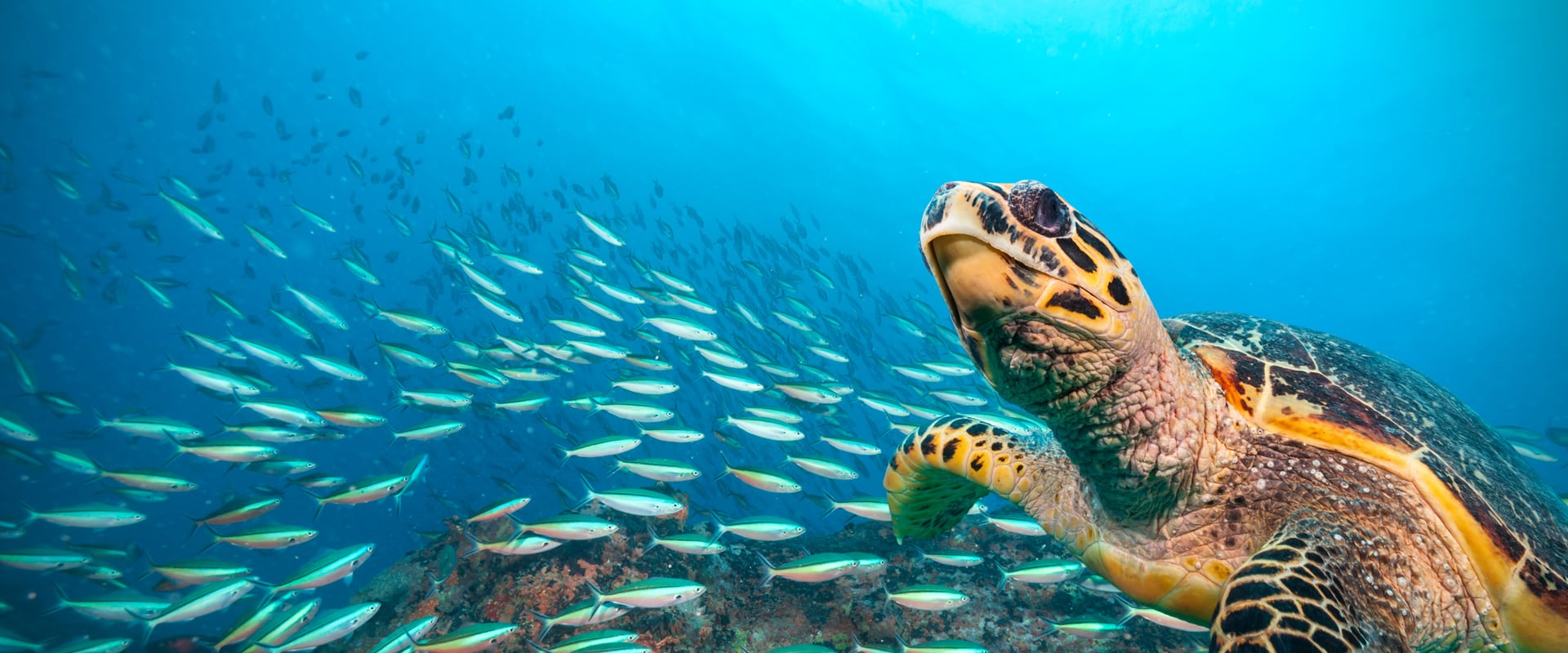Liveaboard Diving in Mahe
WHAT TO EXPECT ON A MAHE LIVEABOARD
Liveaboards in Mahé offer divers easy diving in clear water with a variety of marine life to enjoy. Mahé is the largest island in the Seychelles' and forms part of the Inner islands, the majority of which are granitic. There is a wide choice of dive sites surrounding Mahé with plenty of options for beginner through to experienced divers. While many dive sites are close to shore, there are even more that require longer day trips. A Mahé liveaboard in combination with nearby island of Praslin, La Digue and Curieuse, is the best way to experience this area. Liveaboard.com offers 3 different liveaboards in Mahé.
MAHÉ UNDERWATER
Common fish species include angelfish, butterflyfish, octopus, lionfish, nudibranchs, mantis shrimp, batfish, sharks, moray eels, etc. The average depths range between 8-30 meters with easy conditions. Divers can expect a wider range of topography on the outer reefs from deep drop-offs, underwater boulders, swim-throughs, caves, and more. Napoleon wrasses, schools of humphead parrotfish, stingrays, reef sharks, and green/hawksbill turtles reside in these outer waters. Sailfish, Silvertips, oceanic whitetips, manta rays, whale sharks, and rare lucky sightings of hammerhead sharks can also be seen in the blue. Water conditions present mild to strong currents, good visibility, and warm temperatures.
DIVE SITES / AREAS OF MAHÉ
Mahé liveaboard itineraries may vary but dive sites/areas include:
Coral Garden reefs gently slope to a sandy bottom. Staghorn corals provide shelter for a large variety of reef fish and Sting Rays and Hawksbill turtles make occasional appearances.
Aquarium is a favorite for novice and night dives (6-14m) and lives up to its’ namesake for marine life; close to the surface, a large anemone field adorns the top of one of the bommies where three-banded Clown Fish reside.
Lighthouse’s terrain of dramatic granite boulders and massifs with hard coral formations drops to the sandy bottom at 28-30 meters.
Brissare Rock is a dramatic rock sticking out of the ocean, located between Mahé and Praslin. The granite massif and surrounding outcrops, adorned with white fan corals, protect schools of yellow snappers and harbor some of the largest morays in the area. The occasional current attracts schooling pelagics, friendly stingrays, hawksbill turtles, reef sharks, and whale sharks in season.
Cap Ternay on the Western tip of the North West Bay, has a reef that drops steeply to a sandy bottom with boulder outcrops at 20m. Mild to strong current attracts visits by Turtles, Sharks, schools of Pelagics and Whale Sharks (in season)
Bay Ternay Marine Park is an easy 6-23m dive with probably the best hard coral formations around Mahé, good for reef fish, Moray Eels, and common sightings of Hawksbill turtles.
Shark Bank lies between Mahé and Silhouette Island. The strong current can attract reef sharks, whale sharks (in season), eagle rays, tuna, and barracuda. Granite gullies and boulders protect a resident population of reef fish and invertebrates with schools of yellow Snapper and batfish.
TOP TIPS FOR DIVERS
The best time to dive Mahé is from March to May and September to November when the water temperature is at its warmest of 29 degrees Celsius (84 degrees Fahrenheit) and visibility remains good (up to 30m). Some dive areas are tailored for the more advanced diver so it may be better to check with your Mahé liveaboard cruise what dive experience you need before deciding your itinerary. It is possible to rent equipment on most cruises although it is recommended to have your own gear.
The currency is the Seychellois Rupee but it is recommended to take US dollars with you also. Electricity voltage runs at 220 volts, bring a universal adapter.
GETTING TO MAHÉ
Air Seychelles, Emirates Airlines, Etihad Airways, Air Berlin, Kenya Airways, all fly into Mahé’s Victoria International Airport where a variety of Seychelles liveaboards depart from.
Mahe Diving Reviews
- 3.6 Review score
- 3.6 Review score
- Benoit D
Belgium
The dives were cancelled when we came back to Mahé because of the visibility only the snorkeling was available.
Diving Mahe in July on the Sea Bird & Sea Star











